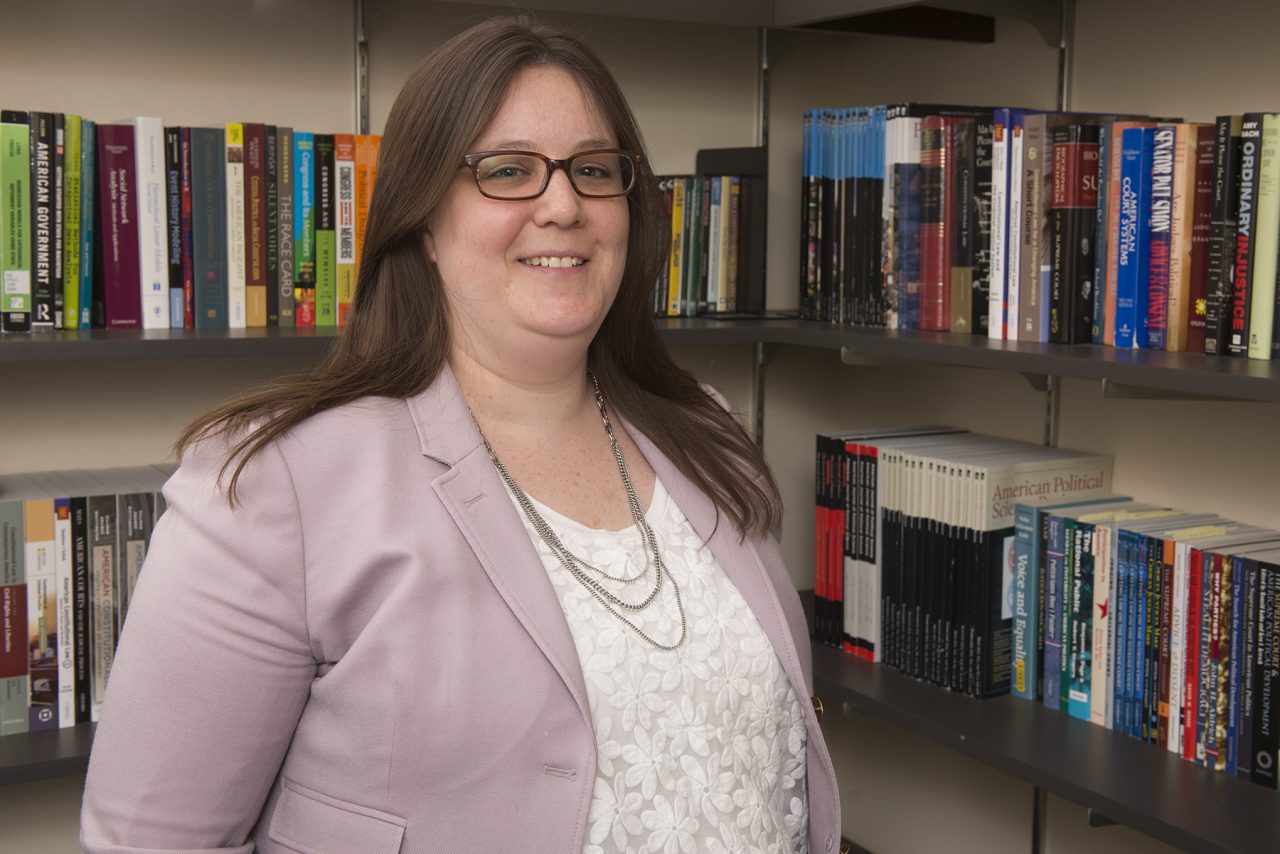Illinois State University’s Associate Professor of Political Science Meghan Leonard has been awarded a more than $118,000 grant from the National Science Foundation’s Division of Law and Social Science to study battles between state courts and legislatures.
“Most policy that affects people day to day begins with the state—abortion rights, privacy rights, education funding, same sex-marriage, death penalty cases,” said Leonard, who writes extensively on the courts and judicial review of legislation. “So ultimately, this is about who has control over final policy in the state.”
With the two-year grant, Leonard will examine the national trend of states using “court-curbing legislation,” or legislation that restricts the power of the court in some fashion. “It’s introduced fairly often in state legislatures, and used as a way to signal to the courts, ‘Hey, you did something, and we are mad,’” said Leonard, who pointed to legislation that can threaten to shift appointed judgeships to elected ones, or shorten judicial terms.
The project, titled “Judicial Independence and Interbranch Conflict in the American States,” will study what patterns lead to the introduction of court-curbing legislation across the nation, and how often it is used. “Our initial studies show it is usually ideological, so we will look across ideology, judicial selection, and state political conditions,” Leonard said, noting conflict tends to arise when appointed justices reject policy of more conservative elected officials.
The state of Kansas recently went through a series of court-curbing legislation, trying to pass more than 30 bills over the span of two years. “A conservative governor and legislature were angry at the more liberal-leaning state supreme court that kept saying the school-funding bill was unconstitutional,” said Leonard. After failing to cut all funding to the courts, “legislation was considered to allow for the impeachment of state court judges, “which is really, really bad for the balance of power in the state,” she added.
Court-curbing legislation does not need to pass in order to impact the balance of power, noted Leonard. “We have evidence from studies on the U.S. Supreme Court that when Congress even introduces this kind of legislation, justices restrict their use of judicial review,” said Leonard. “So what happens when you have much weaker state institutions responding to state legislatures? That is the question we hope to answer with this project.”
The project begins in May of 2017 and runs until 2019.


